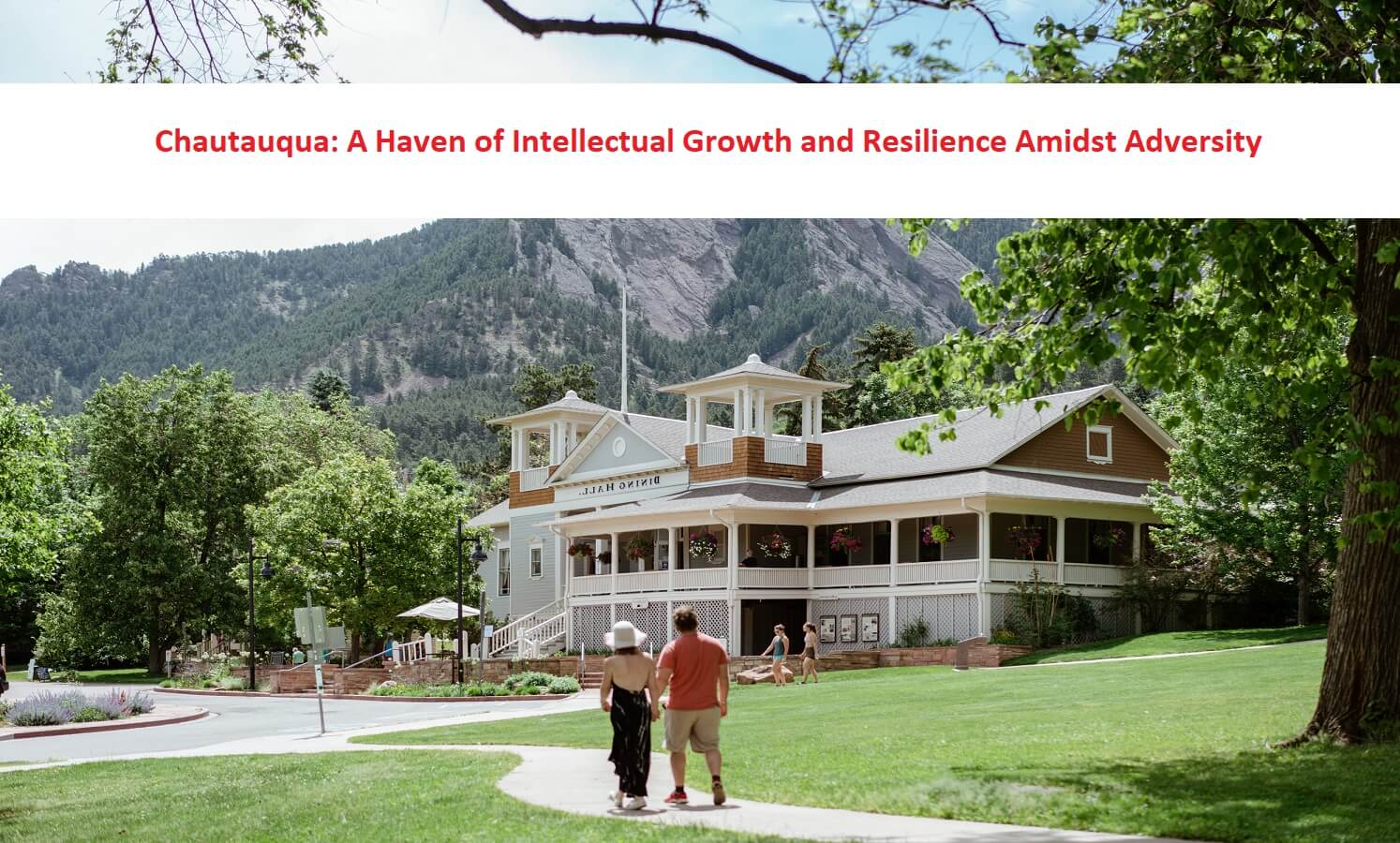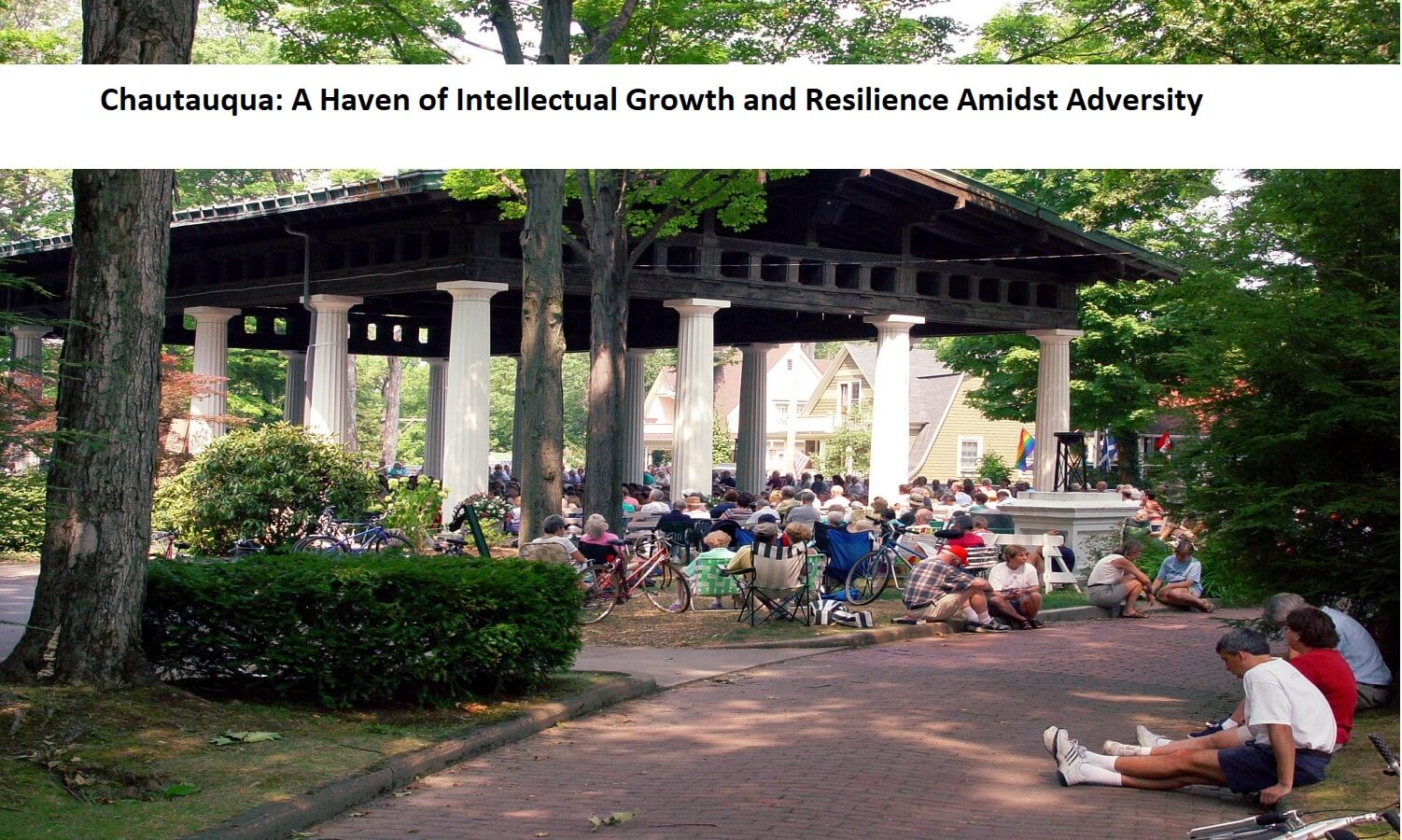Chautauqua : With a history spanning 150 years, Chautauqua has been a haven for open discourse and intellectual growth. Last year, the serene atmosphere was shattered when Salman Rushdie, the acclaimed author, endured a shocking attack, being stabbed 12 times during his speech.
This Institution President Michael Hill remained steadfast in upholding the values that Rushdie and other speakers, preachers, and artists represent – the unrestricted exchange of ideas and the belief that it strengthens society.
Yet, this country faced additional challenges beyond the incident. The impact of COVID-19 halted funding and the hosting of events for two seasons, making it difficult for the cherished arts and educational vacation destination in southwest New York to recover fully.
But this Institution is no ordinary place; it is a self-contained village surrounding Chautauqua Lake. It boasts lecture halls, churches, cafes, stores, a library, post office, bookstore, private homes, rentals, and the historic Athenaeum Hotel, where former President Bill Clinton once prepared for a debate.
Throughout its history, this Institution has hosted renowned figures such as Diana Ross, Bonnie Raitt, and the Chautauqua Symphony Orchestra in its 4,400-seat open-air arena. The institution’s 19th-century summer educational project continues to draw enthusiasts who eagerly attend daily talks on a wide range of topics, from politics and infrastructure to faith and friendship.
Erica Higbie, a resident of Chautauqua, cannot get enough of the enlightening lectures. As she strolls, rides her bike, or glides on a scooter, she cherishes the rare cars that amble at 12 mph. Retired teachers, too, find solace in the morning talks at the courtyard and Hall of Philosophy, sometimes attending two in the afternoon.
Throughout its illustrious history, this Institution has witnessed groundbreaking speeches and discussions. Susan B. Anthony advocated for women’s rights at the stadium, and Al Gore and Ruth Bader Ginsburg spoke about climate change and other pressing issues.
Despite the tragic attack, Salman Rushdie has returned to Chautauqua, showing resilience and determination. On the anniversary of the incident, Henry Reese, a co-founder of City of Asylum Pittsburgh who was also attacked, will join him to discuss freedom of speech, new ideas, and the strength of democracy.
In the aftermath of the attack, concerns were raised about safety, but event attendees praised the enhanced security measures. Attendees at the amphitheater now undergo bag and weapons checks, providing reassurance to visitors.


This Institution remains committed to encouraging diverse viewpoints and fostering meaningful discussions. Michael Hill, the institution’s president, recognizes the value of giving people the opportunity to digest differing perspectives, asserting that relinquishing the tradition of inviting controversial speakers would undermine their mission.
This country’s enduring spirit and dedication to intellectual growth will continue to captivate those seeking community, American culture, and the essence of the human spirit.
READ MORE: South Central Wisconsin Power Outages: Storms Cause Disruptions and Damage
Also Read: Oppenheimer: Unveiling the Hidden Past Sheds Light on New Mexico Atomic Secret
Our Reader’s Queries
What is the meaning of Chautauqua?
The term “Chautauqua” originates from the Haudenosaunee culture and can mean “a bag tied in the middle” or “two moccasins tied together.” It refers to the unique shape of Chautauqua Lake in southwest New York. This lake was the backdrop for the Chautauqua Institution, the inaugural educational assembly in what ultimately became a pivotal movement in adult education.
What was the goal of the Chautauqua movement?
The New York Chautauqua Movement got its name from a lake in western New York, where a training camp for Sunday school teachers was set up in 1872. This movement is often described as offering a mix of education, recreation, religion, and entertainment.
What is a Chautauqua performance?
A Chautauqua is a unique living history experience where actors, dressed in period costumes and fully embodying historical figures, bring the past to life through engaging theatrical monologues.
What is a Chautauqua community?
Rural North America was once engulfed in a cultural and social movement, with its foundation resting on four key elements: Arts, Education, Entertainment, and Religion. This phenomenon, known as Chautauqua, thrived until the mid-1920s, drawing in millions of people to hear from educators, explorers, preachers, and scientists. Additionally, attendees had the opportunity to witness the talents of artists and be entertained by singers, musicians, and bands. Chautauqua’s influence was widespread and deeply impactful, leaving an indelible mark on the region.

